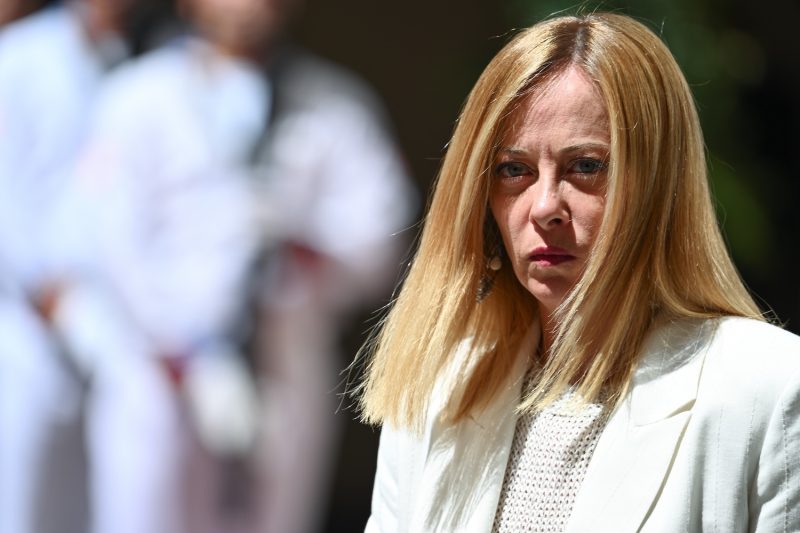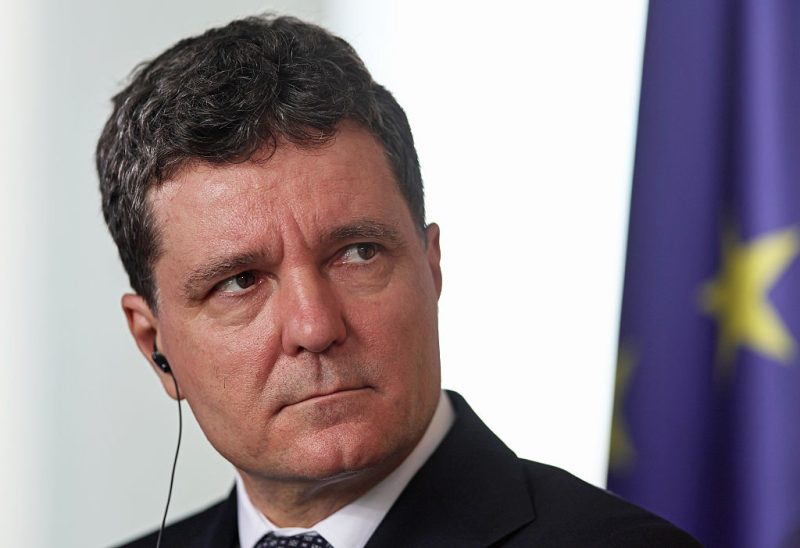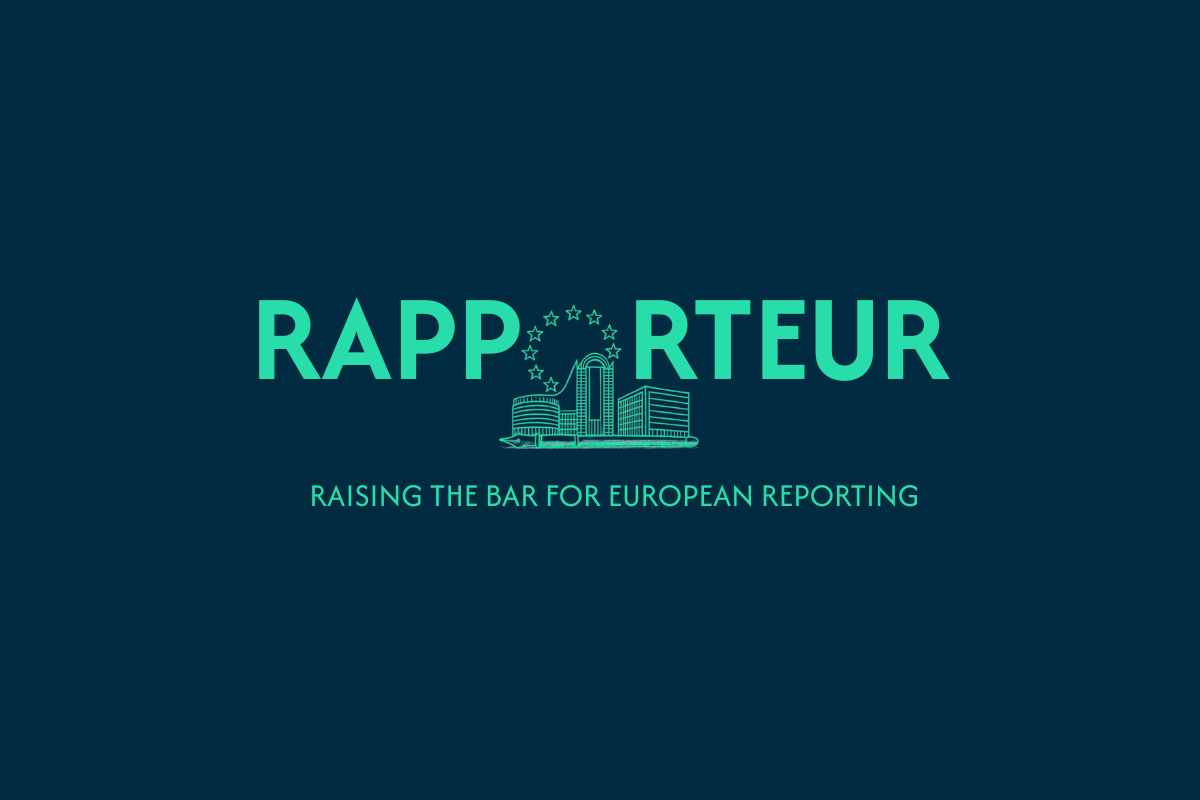Welcome to Rapporteur, the newsletter formerly known as The Capitals. I’m Nicoletta Ionta, joined by Eddy Wax in Brussels. Each day we’ll bring you up to speed on the stories shaping the EU and European politics.
Need-to-knows:
Ukraine: Friedrich Merz urges EU to unlock €140 billion in Russian reserves as interest-free loan
Defence: Kyiv to brief EU leaders on its ‘drone wall’ strategy against airspace incursions
Migration: The Netherlands, Uganda agree on pilot hub for rejected migrants, legality remains uncertain
But first, we turn to a fight over identity and direction in Europe’s east…
Subscribe
Today’s edition is powered by the Party of European Socialists (PES)
PES Congress 2025: Progressive Mobilisation.
Not politics-as-usual, but a large conference uniting prime ministers, mayors, politicians, journalists, activists, artists, academics, trade unionists, and entrepreneurs from across Europe and beyond to tackle Europe’s big questions – and turn ideas into action.
16–18 October 2025, Amsterdam.
From the capital
Voters in Moldova will go to the polls on Sunday in what may be the most consequential election since the country gained independence from the Soviet Union three decades ago.
For this nation of 2.4 million, wedged between Romania and war-battered Ukraine, the choice is stark: remain on a path toward Europe or turn back to Moscow.
President Maia Sandu’s Party of Action and Solidarity has tied Moldova’s future to integration with the EU, now the country’s largest financial backer. But the pro-Russian Patriotic Electoral Bloc, nostalgic for the Kremlin’s embrace, has mounted a serious challenge, threatening her majority and the reforms linked to Moldova’s accession bid.
Leaders across the bloc have lined up behind Sandu. In recent weeks, she won a standing ovation at the European Parliament and hosted a rare joint appearance in Chisinau with France’s Emmanuel Macron, Poland’s Donald Tusk, and Germany’s Friedrich Merz. Macron delivered a pointed pledge to defend Moldova’s sovereignty against Russian aggression.
Money has followed the symbolism. The EU wired €18.9 million to Chisinau this month under its reform and growth plan, part of billions of euros it has committed to anchor Moldova more firmly to the West.
For Brussels, the stakes go far beyond one small state: the outcome will test whether the bloc can still project influence in its own neighbourhood.
The Kremlin, meanwhile, has not stayed on the sidelines. Moldovan officials have accused Russia of funnelling hundreds of millions into the country to buy votes and foment unrest, much of it through disinformation campaigns on TikTok, Telegram, and other platforms, Anupriya Datta and Magnus Lund Nielsen write.
Networks tied to fugitive oligarch Ilan Shor, sanctioned by Brussels in July, have been accused of orchestrating bot-driven propaganda portraying Sandu as authoritarian and spreading false claims of EU troop deployments.
At the United Nations, Ukraine’s Volodymyr Zelenskyy warned that “Europe cannot afford to lose Moldova too.” Sandu has likewise framed the vote as existential, telling MEPs in Strasbourg this month, “our European path is not just a matter of values. It is a matter of survival.”
A victory for the pro-Russian camp would derail Moldova’s enlargement aspirations and hand Moscow a win just across the EU border. On Monday, the country will either appear more firmly on a European path – or stand as a cautionary tale of Russian resurgence.
Berlin floats loan from frozen Russian assets for Ukraine
Merz has urged the EU to unlock €140 billion in frozen Russian assets to help support Ukraine’s war effort, proposing in an FT editorial an interest-free loan that would be backed by member states and later by the EU’s long-term budget. Repayment, he said, would only come once Moscow pays reparations.
The plan, expected to dominate an informal EU summit in Copenhagen next week, comes as Brussels rejected calls from lawmakers to confiscate the roughly €210 billion in Russian central bank reserves in Belgium, as my colleague Thomas Moller-Nielsen reports. So far, the bloc has limited itself to using only interest generated from the frozen funds.
John Berrigan, director general of the Commission’s financial services division, told MEPs that the bloc’s plan is instead to “mobilise” the assets through a legally secure “reparation loan,” warning that outright seizure would breach sovereign immunity and undermine global financial stability. “Once you break it, it’s broken for all countries,” he said.
Kyiv to share ‘drone wall’ plans with EU leaders
Ukraine’s defence minister will brief Defence Commissioner Andrius Kubilius and key governments today about plans to build a “drone wall” to counter Russian aerial incursions. The presentation comes as Europe remains on high alert after a series of violations by Moscow in its airspace.
Since the war began, Ukraine has made drone technology central to its defence strategy, spurring rapid innovation in unmanned systems, Charles Cohen writes. A Commission spokesperson said the minister will also consult with frontline countries to assess their drone capabilities and consider whether to draw lessons from them for Ukraine.
MEPs demand action after Hungary blocks Pécs Pride
The leaders of the Greens, S&D, Renew Europe, and The Left have urged Ursula von der Leyen to intervene after Hungarian authorities banned the Pécs Pride set for 4 October. Lawmakers had already rallied in Budapest in June when the government blocked the capital’s Pride.
In their letter, they warned of a “deteriorating state of the right to assembly” in Hungary and called on the Commission to assess whether such bans violate EU law.
The budget fight flying under the radar
In Brussels, the European Parliament’s most significant oversight tool is the annual technical discharge procedure, a review of the EU’s spending meant to scrutinise irregularities and hold institutions accountable. In practice, it has become a ritual of frustration.
This week, the Budgetary Control Committee once again recommended denying discharge to the Council, citing the Council’s “lack of cooperation” in a move that underscores the deepening rift between the two institutions.
Copycats welcome: EU-India GI deal delayed
A deal between the EU and India on geographical indications (GI) – the multibillion-euro scheme that shields iconic food and drink from imitation – won’t be ready by 2025, trade negotiator Christophe Kiener told MEPs on Thursday.
Kiener blamed the delay in GI negotiations on New Delhi’s ongoing review of its own legislation, which means that an agreement with Brussels to recognise and protect products such as Kalamata olives or Champagne will need to wait, Sofia Sanchez Manzanaro reports.
Brussels watchdog moves against Bulgarian prosecutor
The European Public Prosecutor’s Office has launched disciplinary proceedings against its Bulgarian member Teodora Georgieva – the first case of its kind for the four-year-old body.
On Thursday, the Luxembourg-based body said the move follows months of internal inquiries after videos surfaced allegedly showing Georgieva meeting a known criminal figure, revelations that rattled Bulgaria’s judicial system.
Georgieva has denied wrongdoing, saying she withdrew from a sensitive fraud case under pressure and later faced threats from a Bulgarian lawmaker. The case is seen as a major test for the EU body, which was set up to investigate large-scale financial crime across the bloc.
The capitals
BRATISLAVA 🇸🇰
Parliament is set to vote today on PM Robert Fico’s push to rewrite the constitution, with proposals to enshrine the concept of only two sexes, ban surrogacy and adoption by same-sex couples, and assert national sovereignty over “cultural and ethical matters.” Critics, including the Venice Commission, warn the amendment could let Slovakia defy EU law and international rulings, though Fico remains two votes short of the supermajority needed to pass it.
AMSTERDAM 🇳🇱
The Netherlands struck a deal with Uganda on Thursday to set up a pilot transit hub for rejected asylum seekers, allowing migrants who cannot be directly repatriated to be temporarily housed in Uganda before returning to their countries of origin. Migration Minister David van Weel said the plan is meant to “get migration under control,” though its legality under Dutch and international law remains unclear, drawing comparisons to the UK’s failed Rwanda scheme.
WARSAW 🇵🇱
Parents in Poland faced a Thursday deadline to withdraw their children from new health education classes, which the Catholic Church and the opposition Law and Justice party have condemned as ideological. The government said the lessons focus on diet, exercise, and online safety, and polls show most Poles in support.
ROME 🇮🇹
Shares of Brunello Cucinelli fell after hedge fund Morpheus Research accused the Italian luxury brand of violating EU sanctions by continuing to sell in Russia. The company rejected the allegations, saying Russia accounts for only 2% of its revenue and warning it could pursue legal action.
MADRID 🇪🇸
Foreign Minister José Manuel Albares said on Thursday that a Spanish military ship escorting a Gaza-bound aid flotilla posed no threat to Israel. PM Pedro Sánchez defended the move as necessary for participants’ safety after activists reported Israeli drone attacks near Tunisia.
ATHENS 🇬🇷
Government spokesperson Pavlos Marinakis said this capital “firmly and unconditionally” supports a Palestinian state but stressed that formal recognition must wait until it serves Greece’s national interests.
PARIS 🇫🇷
In more trouble for the economy, France’s savings rate rose to 18.9% in June, its highest level in 45 years, the national statistics agency said. With households holding on to cash amid political turmoil, the Banque de France cautioned that growth could slow to 0.9% in 2026.
Also on Euractiv
‘Melonimania’: France eyes Italy’s right-wing experiment
PARIS – To resolve the French political crisis, Italian Prime Minister Giorgia Meloni has offered…
4 minutes

Italian PM Giorgia Meloni, who built her power on a united right-wing bloc in Rome, is urging French conservatives to try the same.
Her message resonates in Paris, where a divided parliament is closely watching Italy’s relative stability. But Marine Le Pen, still pursuing her anti-establishment strategy, remains a major obstacle to any lasting alliance.
‘What matters is the ending’: Early stumbles put Romania’s new president under scrutiny
BUCHAREST – Four months into his mandate, Romanian President Nicușor Dan has yet to deliver…
3 minutes

Romania’s new president, Nicușor Dan, entered office on a wave of anti-corruption promises but has stumbled through his first months in power. Austerity measures by the governing coalition have contradicted his campaign pledges, inherited staff have left him isolated, and his absence from forums like the UN General Assembly has dented his international standing.
Once hailed as a reformer, Dan now faces growing criticism at home and abroad, with allies and opponents alike questioning whether his cautious style is prudence – or paralysis.
Agenda
➡ NATO Military Committee meeting in Riga
➡ Commissioner Sefcovic visits Vietnam
➡ Coreper I meeting
Schuman roundabout
ESTONIANS OFFENDED: Estonian members of the Renew group said they’re offended after colleagues were warned about the risk of Russian interference while travelling to Estonia. With Renew lawmakers set to visit the country’s border with Russia next week, an HR official in the group circulated Parliament’s standard travel guidance for trips abroad – including tips on avoiding spies and blackmail.
“What is this? Estonia is a member state of the European Union and NATO,” MEP Urmas Paet wrote an email to colleagues, seen by Rapporteur. “I don’t remember anything like this being distributed during Renew group trips to Vienna or Ostende. That’s just offensive.” Fellow Estonian MEP Jana Toom agreed: “I absolutely support Urmas, this is offensive. The fact that you are going to have [a] boring boat trip on Narva river to look at the forest on the Russian coast does not make Estonia [a] more dangerous place than Brussels.”
Contributors: Sofia Sanchez Manzanaro, Anupriya Datta, Charles Cohen, Elisa Braun, Magnus Lund Nielsen, Thomas Møller-Nielsen, Alessia Peretti, Inés Fernández-Pontes, Aleksandra Krzysztoszek, Laurent Geslin, Sarantis Michalopoulos, Bryn Stole, Natália Silenská
Editors: Christina Zhao, Sofia Mandilara
